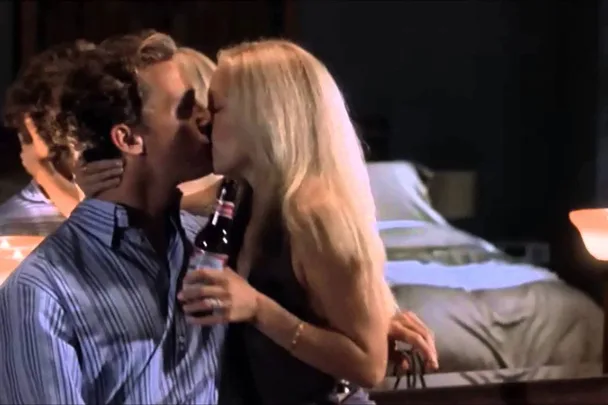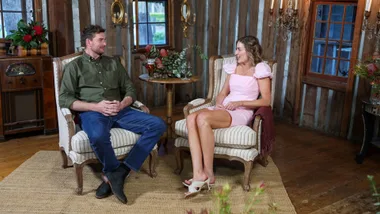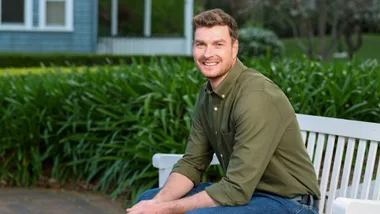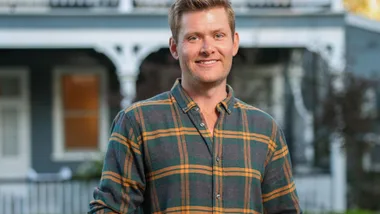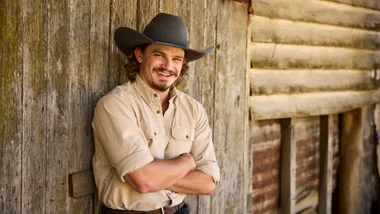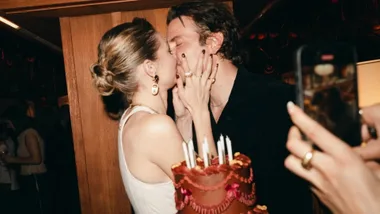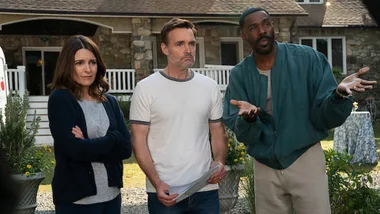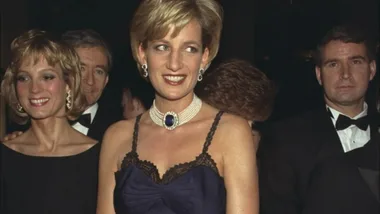If you’re single and looking for love (or, at the very least, a good time, maybe a few dates that are reliable enough you feel comfortable scheduling them in the iCal!) you’ll get familiar with a particular cycle of thinking regarding the state of your love life. Which is to say; when you’re going through a bit of a slump, you incorrectly diagnose the problem as being you.
And there comes a time in every single girl’s life when she takes that a step further and asserts that actually, it’s not just her that’s the problem, even more specifically, it’s that she’s making the mistake of having sex on the first date. What a dunce! A fool!
Now, before I go any further, let’s get one thing straight: this isn’t about being a prude.
I was once on a boat for my cousin’s hens with my mother, her sisters and my nan. My aunt began her annual interrogation about why I’m still single before ultimately resigning defeat. “It’s fine!” she said, not entirely convinced of her own claims. “You’re young, you should be playing the field.”
“Oh, trust me, she is,” my mum interjected, without missing a beat.
Ahoy! Slut-shamed on the high seas!
I mean, she didn’t really mean to slut-shame me, she loves me as the sexually promiscuous person I am, but my point is that even my mum knows how laissez faire I am when it comes to sex.
But something has changed over the course of the pandemic – well, many things have changed – but particularly in relation to how we court and the role sex plays. Apparently, sex has become even less important than before, with more and more singles saying that they’re in absolutely no rush to find out what someone’s like in the sheets. Sex on the first date, it appears, is going to become an exception, rather than the rule.
Recent research done by Bumble revealed that post-pandemic, more than half (53%) of single Australians said they’ll be waiting longer to have sex with a new partner compared to before the pandemic. The dating app is calling the trend ‘slow dating’, whereby singles are drawing out the courting process by “taking more time to get to know each other and build a meaningful connection before advancing the relationship”.
“There has been so much anticipation about what life and love will look like after lockdown,and you can almost feel the excitement in the air. However, it is totally normal for that tocome with a dose of anxiety,” Bumble’s APAC Director of Communications, Lucille McCart, said of the new findings. “We want our community to dive back into dating in a way that feels comfortable and safe to them. When it comes to sex and intimacy there is no timeline you need to stick to or rules you need to follow.”
Which is true. But the findings pose an interesting new question about how important sex is, and whether in our rush to establish ourselves as sex positive and, dare I say, liberated, we’ve lost sight of what’s actually important in a relationship.
No doubt, some feminists will look at this data and say, “well, hang on a minute, why does having sex earlier preclude you from establishing a meaningful connection with someone? Are we all just becoming more antiquated in the way we consider the formation of relationships?”
And look, they’d also have a point. I don’t think the decision to have sex on the first date has any moral or definitive weight. You can have sex on the first date, or wait two months, either way, if the relationship isn’t going to work – it’s not going to work, regardless of when you have the sex. And maybe that’s why people are turning away from getting it on – amid the rise of sex positivity and the discourse that makes it clear we can fuck whoever, and as often as, we want, it really is more unique (I guess) when you don’t have sex with someone immediately. With this, however, there is, I believe, a potential threat of correlation being mistaken for causation.
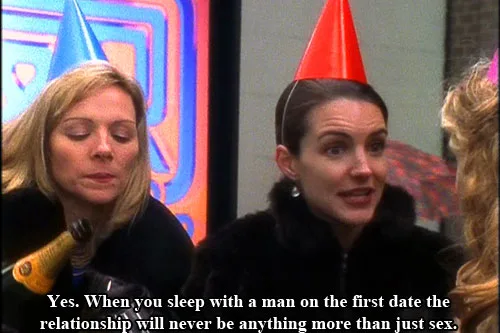
Take, for instance, a recent date I had. It was Saturday night and a friend cancelled our dinner plans at the last minute. I’d been talking to a nice-enough-seeming dude on Bumble, and when he asked what I was doing, I mentioned my friend’s cancelation which left me to enjoy a chill night at home. “Sounds like exactly what I need,” he replied, mentioning he was with friends at the bowlo.
“Feel free to join me,” I told him, figuring that now we can IRL hang with people in our houses, may as well take advantage of it. Yolo and all that.
And so he did. Full disclosure: when he came over, I was kind of anticipating it would turn into a one night stand-type vibe. It was 8pm on a Saturday night, after all. But we ended up sitting in my living room and just…talking. For four hours. When he arrived he’d asked for water, so water is what we drank. While talking. I was pretty baffled, I admit. There was no real opening for me to bring up my bedroom or for us to touch, which is usually how these things lead to sex. My entire framework was being thrown off by this guy.
Eventually, he noted the late hour, said he better get “out of my hair” and then…left. I was bewildered! And reported as much to my housemates when they asked about it later. “Maybe this is a good thing?!” they pondered, intimating that the fact we didn’t have sex might actually be a sign that this very wholesome night would lead to something genuine.
It didn’t. Other than a polite, “thanks for the company :)” text, I never heard from him again.
As I said, I don’t think when you have sex will always indicate the trajectory of a relationship. What I hope this data does indicate, however, is that singles are approaching dating with a greater level of intention. Rather than fly in autopilot, we’re taking a moment to consider whether or not we actually want to have sex with someone. Which is only going to increase the chances of the sex we do have being better, because it’s on our terms. And isn’t that really when dating is at it’s best?
I’m not sure that leaves us with any more clarity about what it takes to come out of the quagmire that is modern dating any more successful. Hopefully, it means people have a better idea of what they want. One day I hope to be so lucky.
